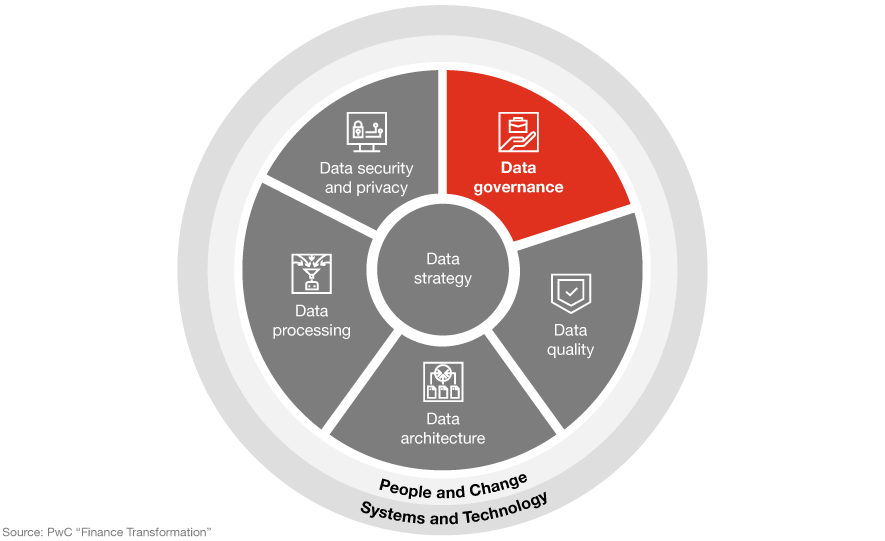How to get my data under control
Data is the oil of the twentieth century, the raw material for new technologies that is revolutionising business processes and new digital products – and the finance function is no exception. Data is redefining the role of CFOs: they are becoming strategic advisers, sparring partners, inventors and catalysts of innovation and growth at corporate level. They are responsible for business-critical data that can be analysed instantaneously, allowing extensive forecasts and simulations which open up huge opportunities for the finance function of the future.
All of this needs to be based on an effective and efficient data management system. Today, all relevant information has to be made available in every process step at the right time, in the right place and at the required level of quality. How the data is handled is crucial for success. Innovation through new technologies requires new and improved data, better organized data, data with fast access and data of excellent quality.
The PwC Data Excellence Framework is the blueprint on the way to the new data-driven finance function of the future:

In addition to the fundamental challenges to robust data management, there are also significant barriers to innovation that need to be overcome to enable further development of data management. Our Data Excellence Framework addresses this combination head-on, helping to build a data management system fit for the future.
Data management – a holistic approach
We at PwC can help you overcome these hurdles by pursuing holistic, structured approaches and solutions while also taking your individual requirements into account. Under our approach, data management covers all processes from generation and validation to protecting and processing your data, to ensure accessibility, reliability and timeliness.
Data management framework
- Data strategy
- Data architecture
- Data governance
- Data process management
- Data quality
- Data security and privacy
Data strategy
Data strategy defines the vision and roadmap for data management transformation to increase corporate value and act as the engine for business strategy across the dimensions of people, processes, technology and culture.
Your data strategy needs to be aligned with your business strategy – which defines your priorities for data management – whilst also reflecting the relevant (mega) trends, innovations and technological developments that are creating new data potential.The orientation and goals of the data strategy are defined by means of assessments and expert interviews. Once the key data-driven accelerators and challenges have been identified for driving your strategy forwards, the design phase can start: strategic vision, interim goals and action plans are defined for the components of your data management system based on the dimensions of people, processes, technology and culture. A roadmap is then prepared for operationalising these aims based on capacity, resources and forthcoming initiatives. KPIs that allow strategy adoption to be measured and incentivised are then created to ensure long-term sustainability.
Your benefits:
- Targeted and coordinated methodology for executing a successful data management transformation
- Transparency on the value contribution of your data management initiatives
- Operationalisation and consistency of strategic measures, along with measurable KPIs on strategy adoption for long-term sustainability

“Data & analytics are becoming increasingly important. The key success factor today is effective data management. Harmonizing and presenting a wide variety of data sources in an end-to-end process will be the decisive difference that makes successful companies.”


















